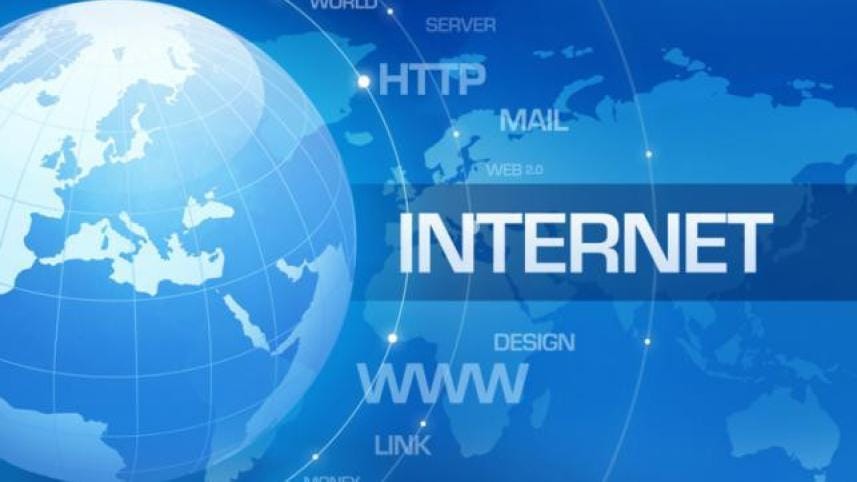Internet users face low speed as 25pc internet supply blocked

The state-run Bangladesh Submarine Cables PLC (BSCPLC), which connects Bangladesh to the world through undersea cable for the internet, blocked bandwidth supply by around 25 percent last night.
Without prior notice regarding the block, the decision caught the ecosystem players by surprise, and they are now grappling with a crisis in maintaining the quality of service, according to the industry people.
The BSCPLC has stopped the supply of over 500Gbps to a number of International Internet Gateway (IIG) operators as they have not paid around Tk 360 crore, said its managing director Mirza Kamal Ahmed.
Of the operators, the bandwidth supply of Aamra technologies was significantly blocked as it had not paid 19 months' dues. Letters were issued to the gateways to pay the dues at different times, the official added.
In Bangladesh, internet connectivity is delivered to customers through a complex network. Initially, bandwidth is provided to Bangladesh via submarine cables or international terrestrial cable (ITC) operators. Subsequently, it is distributed to mobile operators and broadband service providers through the Nationwide Telecommunication Transmission Network operators. Finally, mobile and broadband operators deliver the internet to the consumers.
However, an official from the BSCPLC said that they have capped the IIGs based on the board's instructions.
Ahmed Junaid, secretary-general of the IIG Forum, said if they don't receive payment, they can block certain IIGs. However, they have executed this action without any prior notice.
"For the first time in over a decade, the BSCPLC has blocked IIGs en masse. As an IIG, we also block our customers if we don't receive payment. But we inform them in advance that they will be blocked within a certain timeframe if payment is not received," he said.
"The block was implemented at 12 am, and today is Friday. Therefore, how can a company manage to pay its dues on a holiday?"
"When the peak time of internet use arrives after 7:00pm, customers will face immense problems," warned Ahmed.
"We are working to unblock some IIGs, which requires instructions from the higher authorities, as they have told they will give us cheques that can be cashed on Sunday," he added.
Md Emdadul Hoque, president of the Internet Service Providers Association of Bangladesh (ISPAB), said their customers are suffering from the partial blocking of the bandwidth.
"If BSCPLC hasn't issued a notice prior to warning the IIG about the block, then it's a rash decision," he added.
Total bandwidth usage now stands about 5,000 Gbps and more than half of it -- about 2,700 Gbps -- comes through the ITC service providers that import bandwidth from India across land borders.
The rest -- about 2,300 Gbps -- is supplied by the BSCPLC, which connects the country with two submarine cables.



 For all latest news, follow The Daily Star's Google News channel.
For all latest news, follow The Daily Star's Google News channel.
Comments